12 Reasons Rottweilers And German Shepherds Are Overrated As Guard Dogs
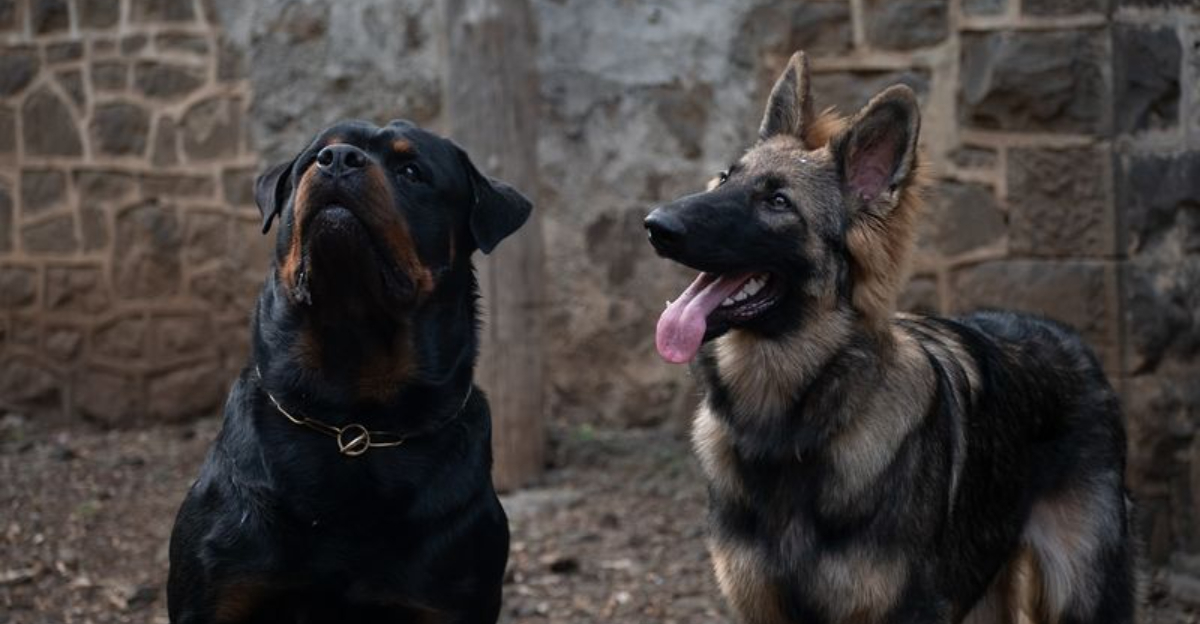
Rottweilers and German Shepherds have long held the throne as top-tier guard dogs, but are they really all they’re cracked up to be? Let’s take a closer look at these legendary canines and uncover why they might not always be the best choice for your home security needs.
1. Unpredictable Temperaments
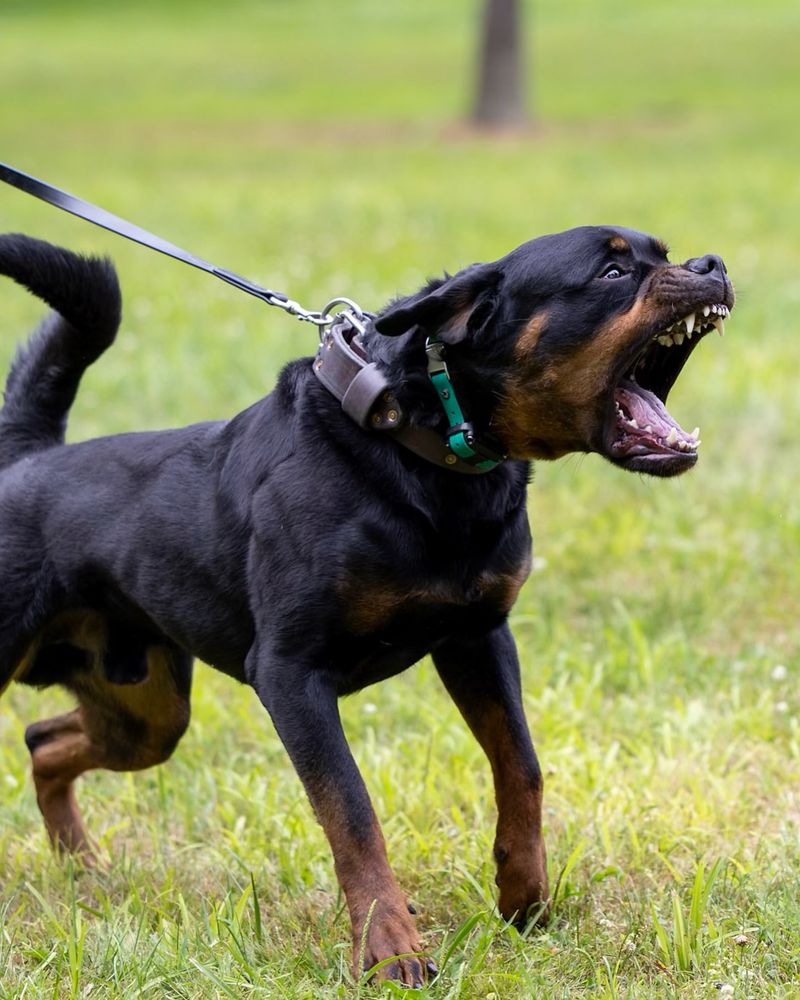
Both Rottweilers and German Shepherds are often lauded for their fierce protective instincts, but those same instincts can translate into unpredictability. These breeds are known for their complex temperaments, which can be challenging to manage even for experienced dog owners. When the instincts kick in, they might act on their own accord, leading to situations that are difficult to control.
Imagine a scenario where a friend comes over unannounced. Your loyal guard dog may not understand the nuances of a surprise visit, and a simple miscommunication could escalate quickly. These dogs need careful socialization and training to differentiate between friend and foe accurately.
Moreover, their unpredictable nature means they require constant supervision and training to ensure they don’t misinterpret a benign situation as a threat. This unpredictability can be emotionally draining for owners who need a reliable, consistent companion. In the world of guard dogs, predictability and control are key—traits these breeds might lack if not properly managed.
2. High Energy Needs
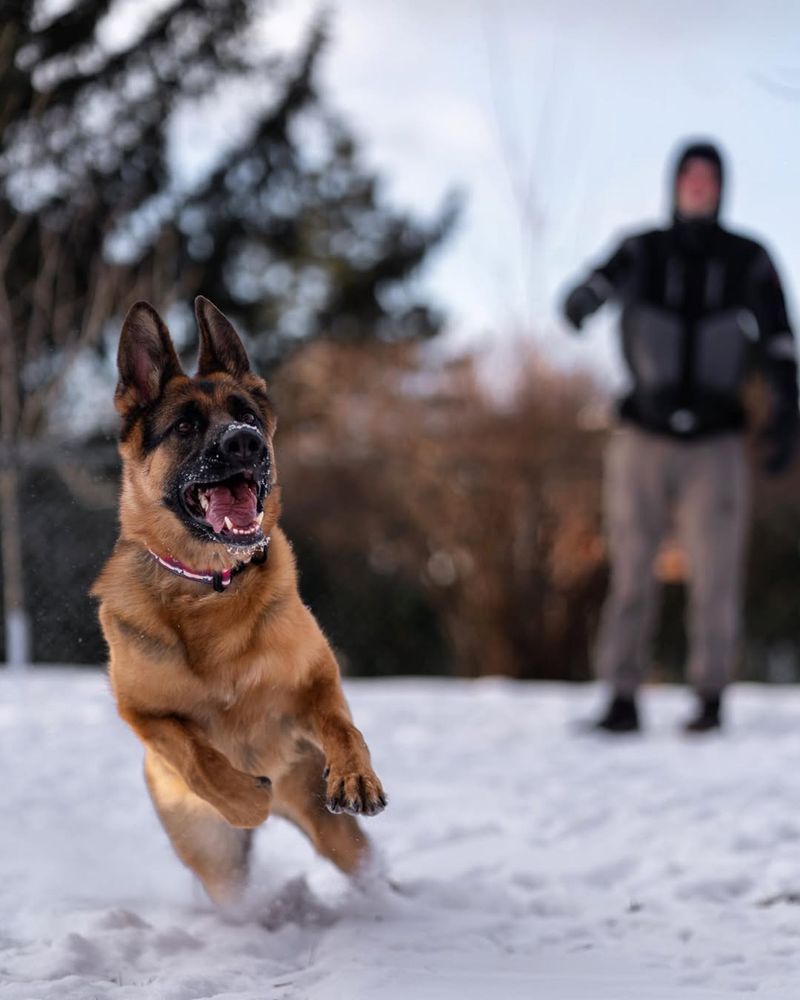
Rottweilers and German Shepherds are powerhouses of energy, which while impressive, can be a double-edged sword. These breeds demand constant physical activity to channel their energy positively. If their activity needs aren’t met, they can become restless, leading to destructive behaviors.
Imagine owning a high-energy dog in a bustling metropolitan area with little room for outdoor exercise. These dogs need space to run and play, and without it, they might turn your couch into a chew toy or bark incessantly out of boredom. Their energy levels are not just a superficial trait; they are intrinsic to their well-being and happiness.
For potential owners who cannot commit to daily rigorous exercise, a Rottweiler or a German Shepherd may not be the wisest choice. Their high energy needs require a lifestyle that can accommodate regular, vigorous activities. Otherwise, their pent-up energy will manifest in ways that are not only frustrating but can also be costly to repair.
3. Demanding Training Requirements
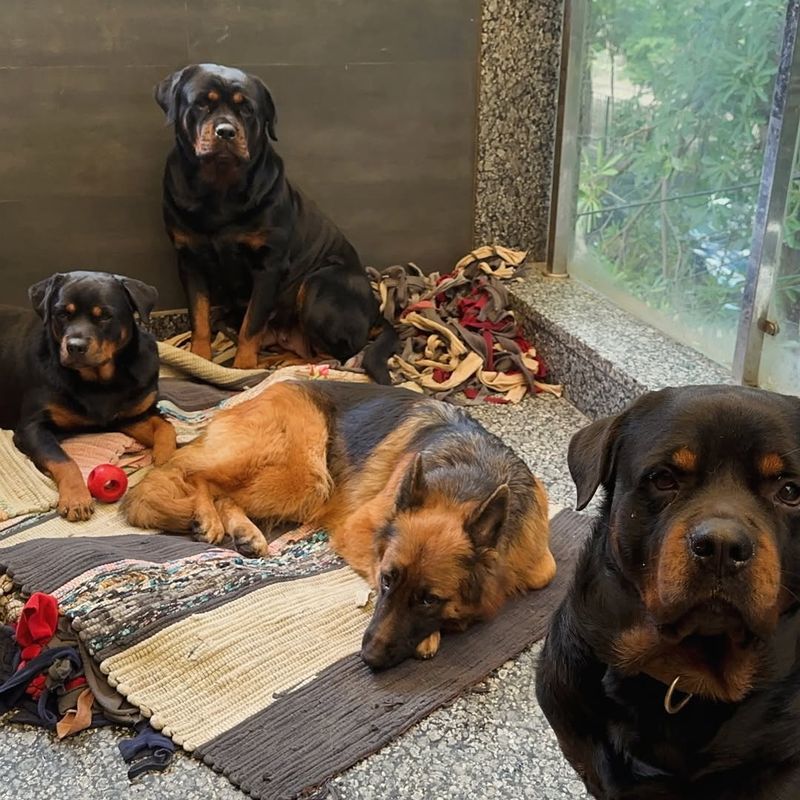
Training a Rottweiler or a German Shepherd isn’t for the faint of heart. These breeds are incredibly intelligent, which means they pick up commands quickly. However, their intelligence also makes them prone to boredom, requiring constant mental stimulation. Basic obedience training is just the starting point; these dogs thrive on advanced tasks that challenge their minds.
Picture yourself in a training class, juggling between the eager-to-learn German Shepherd and the strong-willed Rottweiler. Both dogs need a firm yet patient hand to guide them through complex training routines. Without proper training, their intelligence can become a liability, as they may develop stubborn behaviors.
Potential owners must invest time and energy in consistent training sessions to harness the best traits of these breeds. Training isn’t a one-time event; it’s an ongoing process that demands patience and dedication. If you’re looking for a low-maintenance pet, these breeds, with their demanding training needs, might not be for you.
4. Size And Strength
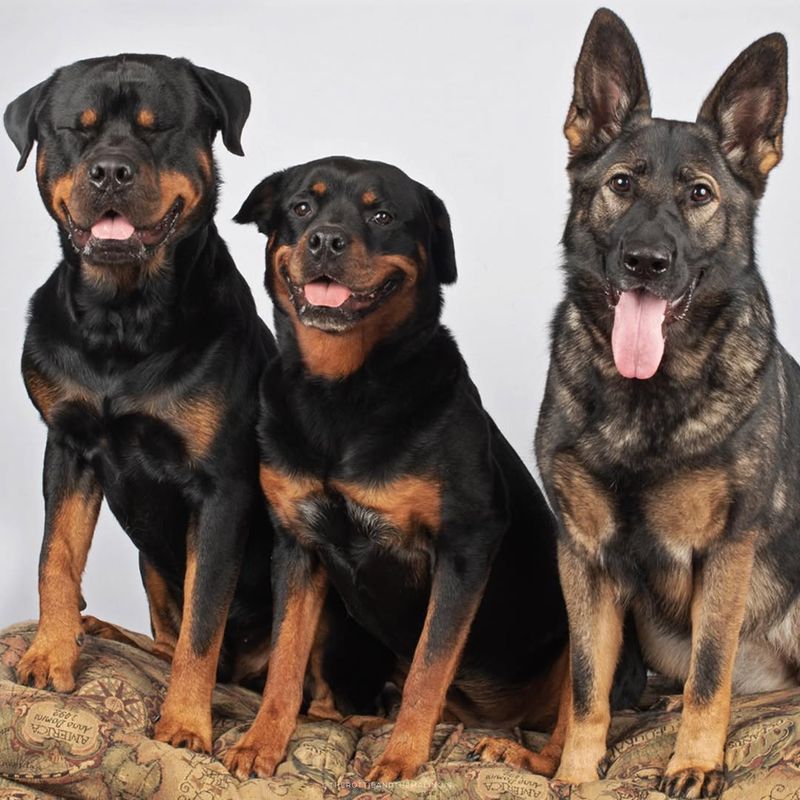
Rottweilers and German Shepherds are known for their imposing size and strength, traits that are both a blessing and a curse. While their physical presence can deter intruders, these dogs require an owner who can manage their power responsibly. Untrained, a strong dog can easily overpower an unsuspecting handler, leading to unintended incidents.
Imagine trying to walk a Rottweiler or a German Shepherd that hasn’t been properly leash-trained. A squirrel darts across the path, and suddenly you’re in a tug-of-war with a dog weighing over 80 pounds. Their strength demands respect, and owning such a powerful breed means committing to mastering leash control and obedience.
For families with small children or elderly members, the size and strength of these dogs might pose a risk. An enthusiastic greeting or a playful nudge from such powerful dogs can inadvertently knock someone off balance. Their physical prowess is impressive, but it requires responsible ownership to ensure it doesn’t become a liability.
5. Health Issues
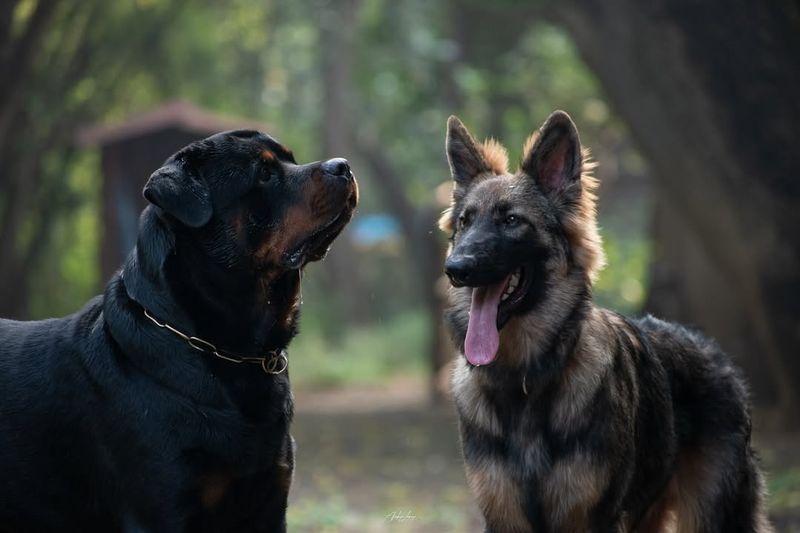
Behind the robust exteriors of Rottweilers and German Shepherds lies a predisposition to several health issues that can be both financially and emotionally taxing. Hip dysplasia is a common concern for both breeds, causing significant discomfort and mobility issues as they age.
Envision regular vet visits where your beloved pet undergoes treatment for chronic joint pain. Managing such conditions requires not only financial investment but also a deep emotional commitment to ensure their quality of life. The cost of surgeries, therapies, and medications can add up quickly, making them an expensive choice.
Furthermore, these breeds are also prone to other genetic conditions like heart problems and certain types of cancer. Prospective owners need to be prepared for the potential of increased healthcare needs as these dogs age. While their stoic nature might mask the pain, owners must be vigilant and proactive in providing the necessary care.
6. Not Ideal For First-Time Owners
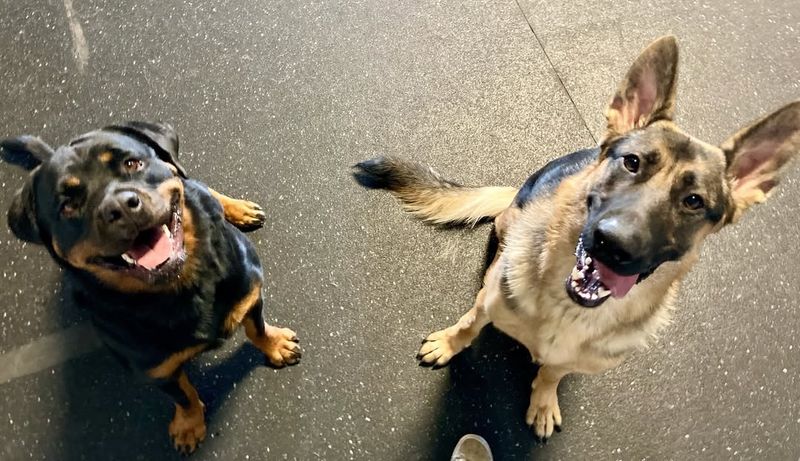
Rottweilers and German Shepherds demand experienced hands. Their intelligence, energy, and size mean they aren’t the ideal choice for someone new to dog ownership. First-time owners might find themselves overwhelmed by the constant need for training, exercise, and socialization.
Picture a novice owner trying to balance the demands of life while managing a high-energy dog that requires mental stimulation. Without the proper experience, they may struggle to assert leadership, potentially leading to behavioral issues. These breeds need a confident owner who can establish boundaries and provide consistent guidance.
For someone unprepared for such a commitment, owning a Rottweiler or a German Shepherd can quickly turn from a dream into a daunting challenge. They require a deep understanding of canine behavior and an ability to anticipate and manage their complex needs. For first-time owners, opting for a less demanding breed might lead to a more harmonious household.
7. Socialization Challenges
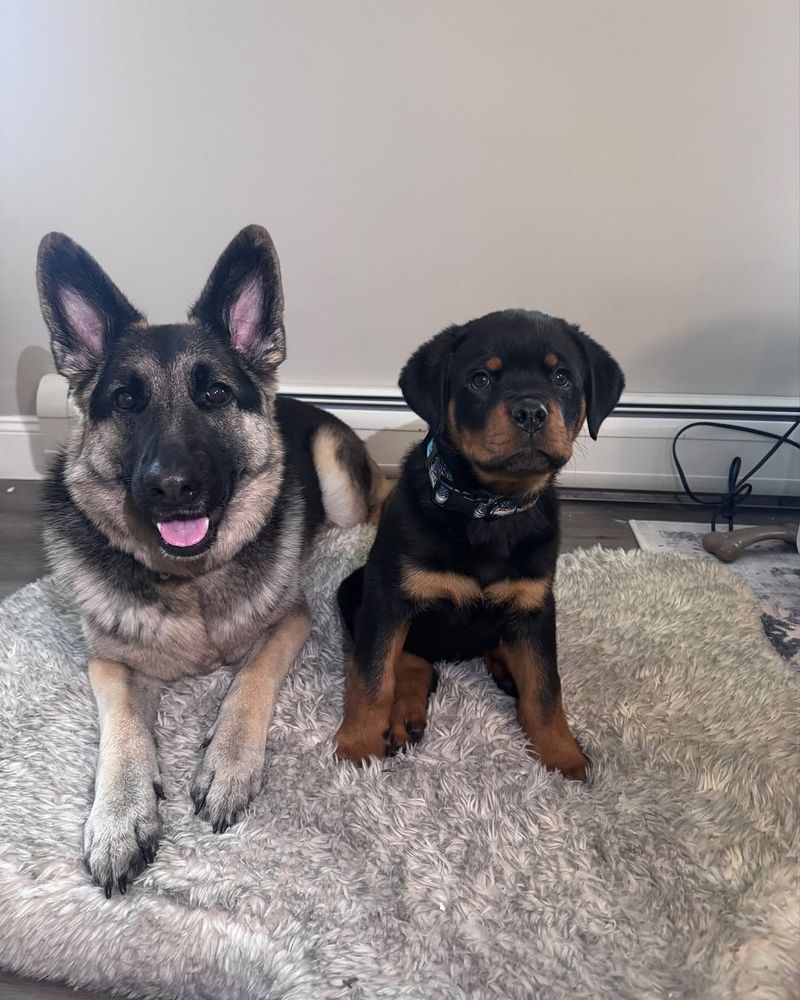
Socialization is a crucial aspect of raising a well-adjusted Rottweiler or German Shepherd. Without it, these dogs might become wary of strangers and other animals, potentially leading to aggressive behaviors. These breeds are naturally protective, which can be misunderstood as hostility if not properly socialized from a young age.
Visualize taking your Rottweiler or German Shepherd to a busy dog park. The constant activity and unfamiliar faces can be overwhelming without proper exposure. Owners must diligently introduce these dogs to various environments, people, and animals to build confidence and reduce anxiety.
Failure to properly socialize these breeds can result in a dog that’s difficult to control in public settings. It’s a commitment that requires time and patience, with consistent reinforcement throughout their lives. For those unable to commit to this crucial aspect of upbringing, another breed might prove to be a better fit.
8. Legal Restrictions
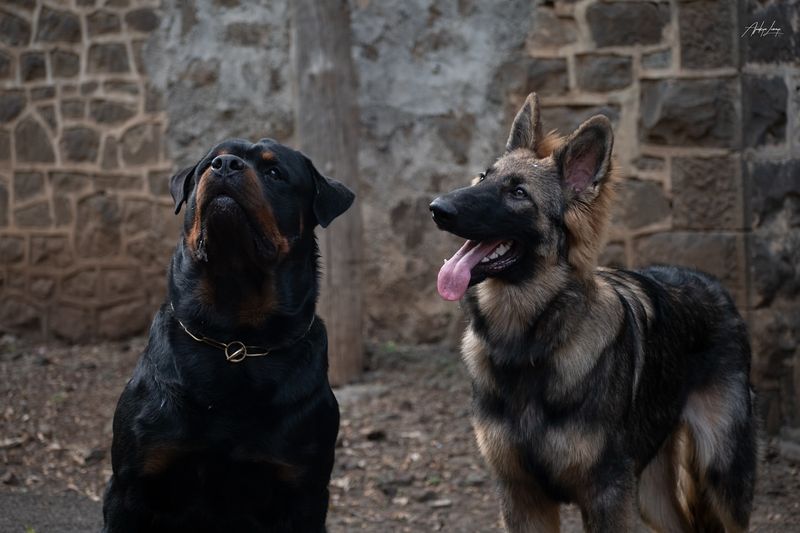
Certain areas have legal restrictions on owning specific breeds, including Rottweilers and German Shepherds. These laws are often due to public safety concerns and can vary significantly from one region to another. Potential owners may find themselves facing bans or restrictions that limit their ability to own these dogs.
Imagine finding your dream home, only to discover that your beloved Rottweiler or German Shepherd isn’t allowed in the community. Such restrictions can force owners to make heartbreaking decisions about their pets. It’s essential to research local laws before committing to these breeds.
Additionally, even in areas without outright bans, there may be regulations requiring extra insurance or special containment measures for these dogs. Navigating these legalities can be complicated and burdensome. For those unwilling or unable to comply with such requirements, choosing a breed without legal encumbrances might be the best path forward.
9. Cost Of Maintenance
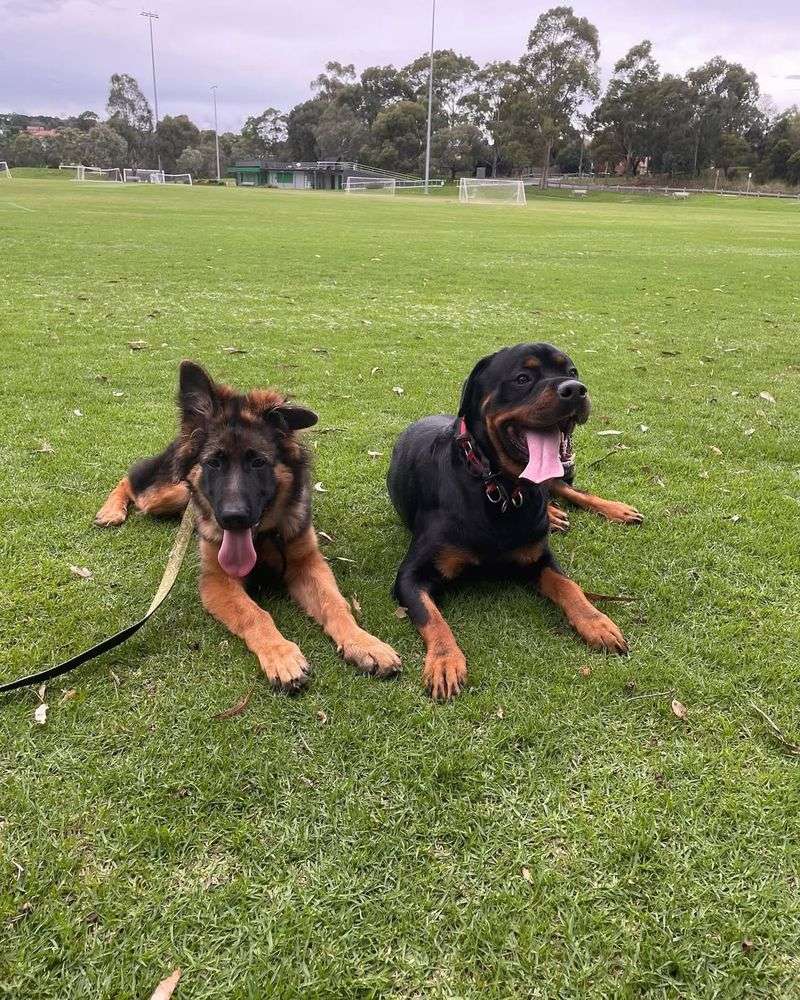
Owning a Rottweiler or a German Shepherd is a significant financial commitment. From food to healthcare, these dogs have substantial needs that can quickly add up. Their size alone means they consume more food than smaller breeds, impacting the monthly budget.
Picture the ongoing expenses: high-quality dog food, regular vet check-ups, grooming, and training sessions. These costs are part and parcel of providing a good life for these breeds. Owners must be prepared for unexpected expenses as well, such as emergency vet visits or specialized training if behavioral issues arise.
For those on a tight budget, the financial burden of caring for these dogs may be overwhelming. It’s important to assess your financial readiness before committing to a breed with such high maintenance costs. Ensuring you can provide for their needs is crucial to having a rewarding and stress-free relationship with your pet.
10. Potential Liability
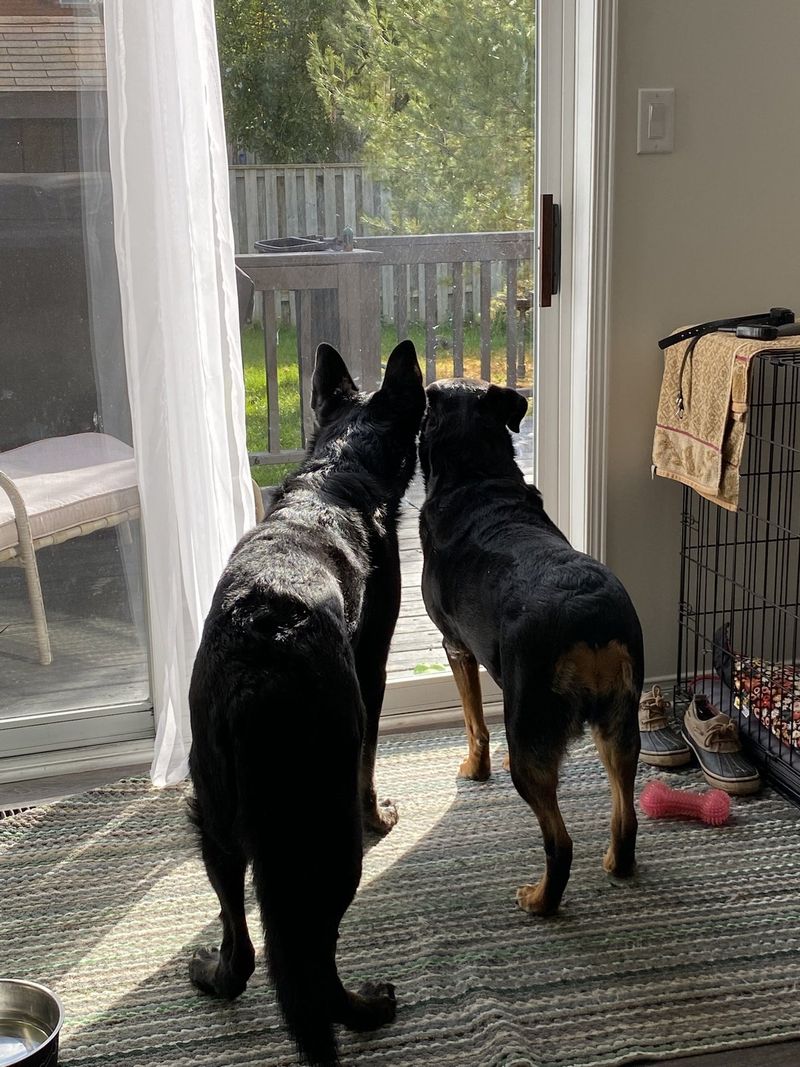
Rottweilers and German Shepherds, despite their loyal nature, can pose significant liability risks to their owners. They are often at the center of legal battles involving dog bites or attacks. Insurance companies may even increase premiums or deny coverage altogether for these breeds.
Visualize a scenario where a misunderstanding leads to an altercation involving your dog. The legal ramifications can be extensive, from paying fines to dealing with potential lawsuits. Such incidents not only affect your finances but can also lead to stressful legal battles.
Owning these breeds requires vigilance and a proactive approach to training and socialization to mitigate risks. Understanding and accepting the potential liability is essential for anyone considering these dogs as companions. For those who prefer a stress-free pet ownership experience, opting for a breed with a less intimidating reputation might be wise.
11. Barking And Vocalization
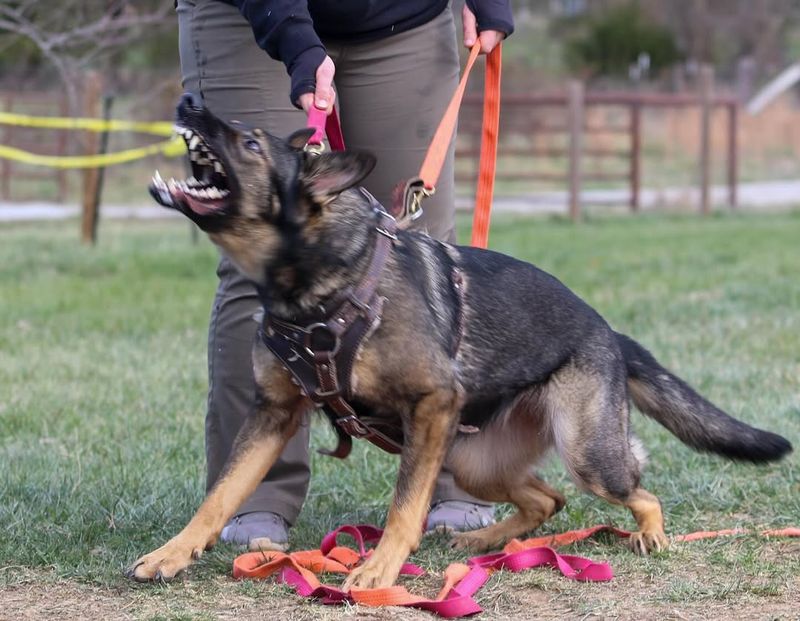
Both Rottweilers and German Shepherds are vocal breeds, known for their distinctive barking. While this trait is useful for alerting owners to potential threats, it can quickly become a nuisance if not properly managed. Their strong vocalization skills can be a source of tension in quiet neighborhoods.
Imagine trying to enjoy a peaceful evening, only to have your dogs bark at every passing car or pedestrian. This behavior not only disturbs the peace but can also lead to complaints from neighbors. Training these breeds to control their barking is essential to maintaining harmony in the community.
For those who prefer a quieter household, these breeds might not be the best fit. Their vocal tendencies require consistent training and management, which might be more effort than some are willing to invest. Considering the impact of their vocal nature is crucial before bringing one of these dogs into your home.
12. Demanding On Time
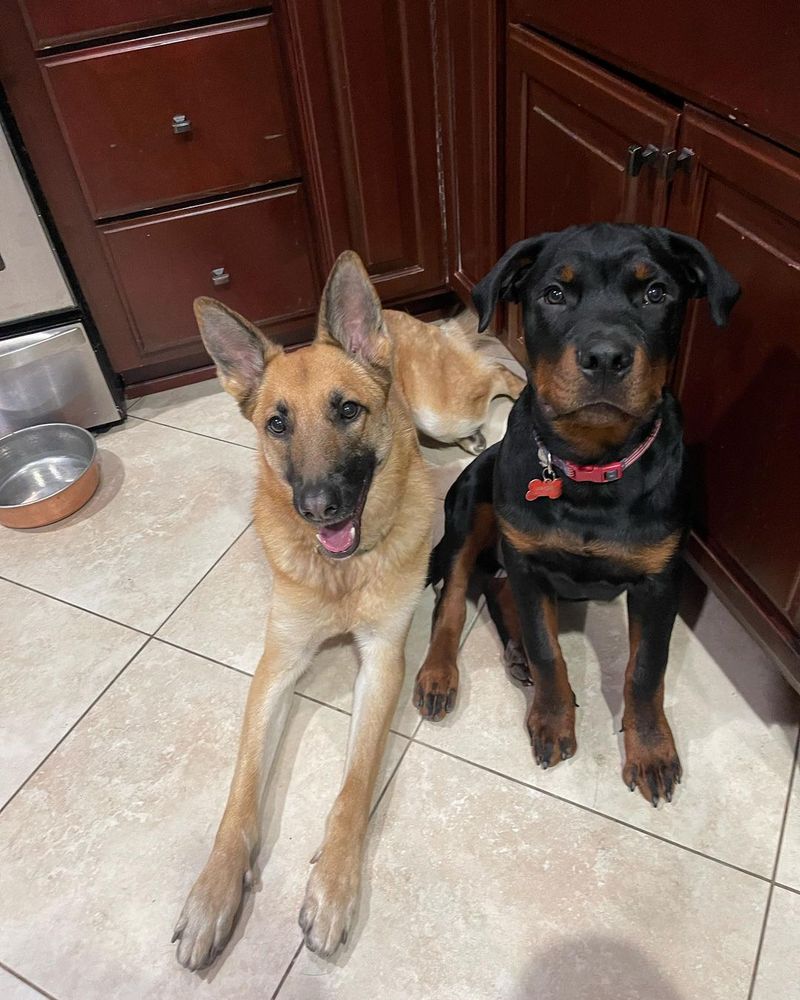
Rottweilers and German Shepherds crave attention and companionship. They are not the type of dogs to be left alone for long periods, as they thrive on interaction and activity. Owners must dedicate significant time to engage with these intelligent breeds.
Envision a packed schedule where work commitments leave little room for anything else. For owners unable to provide ample time for training, exercise, and play, these dogs might develop behavioral issues like separation anxiety. Their need for attention means they are best suited for owners who can integrate them into their daily routines.
Balancing work, personal life, and the demands of a high-maintenance pet can be challenging. For those with limited free time, considering a breed with lower attention needs might result in a more harmonious living situation. These dogs thrive with active, involved owners who can meet their demanding needs.






